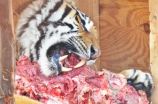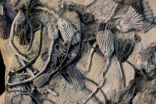(Press-News.org) ROCHESTER, Minn. -- Therapy to ease stress, fatigue and other quality of life issues significantly improves patients' sense of well-being during cancer treatment, new Mayo Clinic research shows. Patients who kept to their standard routines showed a decline in quality-of-life measures, the study found. The findings are published this month in Cancer.
Mayo cancer care specialists created a six-session program to address cognitive, physical, emotional, social and spiritual well-being. Each session includes physical therapy exercises to improve fatigue, discussions of topics such as developing coping strategies or addressing spiritual concerns, and deep breathing or guided imagery to reduce stress.
For people with cancer, fighting the disease understandably takes highest priority. But other factors -- including stress, fatigue, pain, and spiritual uncertainty -- can severely diminish patients' quality of life during and after treatment, says the study's lead author, psychologist Matthew M. Clark, Ph.D., of the Mayo Clinic Department of Psychiatry and Psychology. Many studies have tested strategies to improve patients' experience, but most approaches have focused on only one quality of life issue at a time and typically after cancer treatment, he says.
In the randomized trial, researchers studied a group of 113 patients with advanced cancer; 63 percent were male, mostly in their late 50s. All were receiving radiation therapy at the Mayo Clinic Cancer Center. Family members caring for cancer patients also often experience a lower quality of life, and the study included them. While half of participants stayed with their usual psychosocial routine during treatment (for instance, seeing their own therapists, counselors or clergy), the other half attended the formal, 90-minute program three days a week.
"Much of the success may be that the program is active and engaged, and patients participated in the sessions as part of a group. They received support and encouragement to go home and practice things like physical activity, spirituality and relaxation," Dr. Clark says.
While the study showed that the intervention can improve quality of life for cancer patients, Dr. Clark says there were two surprising results. Researchers found the program did not improve quality of life for caregivers during the treatment time period.
"We were hoping the program would also help caregivers who tend to experience significant emotional and physical fatigue," he says. "We still have to find ways to help them."
In addition, in a follow-up questionnaire conducted six months after treatment, the patients who took part in the program showed a lack of improvement in quality-of-life measures over time.
"The intervention is helpful at a critical time, but doesn't have a lasting continuous enhancing effect," Dr. Clark says. "Our hope is to develop strategies to help people maintain and then improve their quality of life throughout survivorship."
###
The study was funded by the Linse Bock Foundation and Mayo Clinic.
About Mayo Clinic
Mayo Clinic is a nonprofit worldwide leader in medical care, research and education for people from all walks of life. For more information, visit www.mayoclinic.com and www.mayoclinic.org/news.
Journalists can become a member of the Mayo Clinic News Network for the latest health, science and research news and access to video, audio, text and graphic elements that can be downloaded or embedded.
'Quality of life' therapy improves health during cancer treatment, Mayo Clinic finds
2013-02-19
ELSE PRESS RELEASES FROM THIS DATE:
Raw meat diet may not be enough for cats (or tigers)
2013-02-19
Animal scientists say a raw meat diet is a good source of protein for cats, but pet owners may need to supplement with other nutrients.
In a new paper in the Journal of Animal Science, researchers from the University of Illinois at Urbana-Champaign and Omaha's Henry Doorly Zoo and Aquarium analyzed the value of raw meat diets for cats and exotic felids. The researchers used several tests to evaluate the nutrients in meat from bison, cattle, horses and elk.
To test how the different diets affected cats, the researchers collected blood serum and fecal samples from domestic ...
When it comes to genetic code, researchers prove optimum isn't always best
2013-02-19
COLLEGE STATION, Feb. 18, 2013 — Imagine two steel springs identical in look and composition but that perform differently because each was tempered at a different rate.
A team of researchers including a Texas A&M University molecular biologist has shown that concept — that the speed of creation affects performance — applies to how a protein they studied impacts an organism's circadian clock function. This discovery provides new insights into the significance of the genetic code for controlling the rates at which critically important proteins are synthesized, and could ...
Study: p38beta MAPK not critical to brain inflammation
2013-02-19
LEXINGTON, Ky. (Feb. 18, 2013) — A study by a leading Alzheimer's researcher at the University of Kentucky provides new evidence that will help researchers home in on the molecular mechanisms involved in inflammation of the central nervous system (CNS) and aid drug-development strategies for treating inflammatory neurological diseases.
The research was led by Linda Van Eldik, director of UK's Sanders-Brown Center on Aging, and included co-authors Bin Xing and Adam Bachstetter from the Van Eldik lab. The study demonstrated that the beta isoform of p38 mitogen-activated ...
Variations within influenza strain may explain varying patient response
2013-02-19
LOUISVILLE, Ky. – Just the mention of H1N1 can conjure up images of long lines of people waiting to be vaccinated, news reports of the severity of the pandemic and the count of the number of people who perished from the 2009-10 outbreak. However, some positives are coming forward.
Researchers at the University of Louisville have found variations within H1N1 patients who were hospitalized and identified those that most impacted patients. Their findings were published today (Feb. 18, 2013) on the PLOS ONE website.
"While all of the variants that we uncovered hijacked ...
Johns Hopkins Medicine and Fundación Santa Fe de Bogotá collaboration to focus on research, nursing
2013-02-19
An expansion of collaborative projects involving Fundación Santa Fe de Bogotá (FSFB), one of Colombia's premier health care institutions, and Johns Hopkins Medicine International (JHI) will continue for another 10 years under an agreement signed Feb. 18, 2013, in Baltimore, USA. The collaboration agreement detailing joint efforts in research and nursing, among other areas, was signed by Steven J. Thompson, chief executive officer of JHI, and Juan Pablo Uribe, chief executive officer of FSFB.
"It is a privilege to have the opportunity to strengthen our collaboration with ...
Ancient fossilized sea creatures yield oldest biomolecules isolated directly from a fossil
2013-02-19
COLUMBUS, Ohio—Though scientists have long believed that complex organic molecules couldn't survive fossilization, some 350-million-year-old remains of aquatic sea creatures uncovered in Ohio, Indiana, and Iowa have challenged that assumption.
The spindly animals with feathery arms—called crinoids, but better known today by the plant-like name "sea lily"—appear to have been buried alive in storms during the Carboniferous Period, when North America was covered with vast inland seas. Buried quickly and isolated from the water above by layers of fine-grained sediment, their ...
It's off to work we go
2013-02-19
This press release is available in French.
Montreal, February 18, 2013 – In a large city like Montreal, public transit provides us with options for getting to work or school and back home again. In deciding to choose traffic jams over metro delays, or to pay for parking rather than buy a monthly pass, you weigh the pros, cons and costs of your options, and your mental calculations are more complicated than they may appear at first glance.
In a paper recently published in The Journal of Transportation and Land Use, Zachary Patterson, an assistant professor in Concordia ...
Solar sponge' soaks up CO₂ emissions
2013-02-19
CSIRO scientists have created a 'solar sponge' which captures and then releases carbon dioxide using the power of natural sunlight.
The breakthrough presents a new way to recycle CO2 emissions using renewable energy. The 'sponge' which is made from a new smart material called a MOF - metal organic framework - adsorbs carbon dioxide, but when exposed to sunlight, instantaneously releases it.
Known as dynamic photo-switching, this capture-and-release method is extremely energy efficient and only requires UV light to trigger the release of CO2 after it has been captured ...
New evidence for link between depression and heart disease
2013-02-19
MAYWOOD, Il. - A Loyola University Medical Center psychiatrist is proposing a new subspecialty to diagnose and treat patients who suffer both depression and heart disease. He's calling it "Psychocardiology."
In his most recent study, Angelos Halaris, MD, PhD, and colleagues found that an inflammatory biomarker, interleukin-6, was significantly higher in the blood of 48 patients diagnosed with major depression than it was in 20 healthy controls. Interleukin-6 has been associated with cardiovascular disease. Halaris presented findings at a joint congress of the World Psychiatric ...
In fight against cancer, a closer look at nuclear blebbing
2013-02-19
Misshapen cell nuclei are frequently observed in the cells of people with cancer and other diseases, but what causes the abnormality -- and why it is associated with certain disorders -- has remained unclear.
Researchers at Northwestern University have recently developed a mathematical model that sheds light on the defect by clarifying the mechanisms that cause bulges known as "blebs" in cells' nuclear membranes. The research -- a collaboration between experts at the McCormick School of Engineering and Applied Science and the Feinberg School of Medicine -- could be a ...

